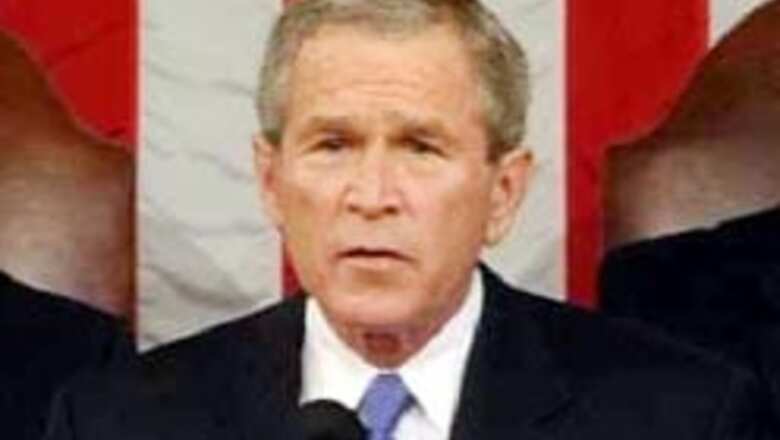
views
Washington: US President George W Bush slept through the execution of Saddam Hussein after learning that the former Iraqi dictator was about to be hanged.
Presidential spokesman Scott Stanzel said Bush was informed of the impending hanging on Friday afternoon and went to bed shortly before it took place at 9 pm Washington time, with instructions not to be woken up.
In a brief statement, the President acknowledged the execution would not end the violence in the country. However, he said it was an "important milestone in Iraq's course to becoming a democracy that can govern, sustain, and defend itself".
Saddam's execution came as US troop losses in December were the highest for any month of 2006.
Bush, who has been conducting an internal review of his policy aimed at halting the deteriorating situation, is expected to publicly outline a new plan for Iraq early in the New Year.
Neither Bush nor members of his inner circle showed any compassion for the fate of Saddam or expressed doubts about the death penalty that was criticised by many European governments.
During Bush's term as Texas governor, some 152 people were executed, more than under any other US state governor.
Secretary of State Condoleezza Rice spoke of "a great day" for the Iraqi people after the death sentence was carried out.
White House spokesman Tony Snow said Saddam had the lives of between 500,000 and 1 million people on his conscience, adding that his death was a warning to other dictators that they could also be held accountable for their actions.
Right up till the end the US administration had sought to convey the impression that it was not involved in any way in the events surrounding the trial of Saddam.
"We are only observers," said one official.
But the US financed the special tribunal that sentenced him to death, trained the judges and helped formulate the charges against the deposed leader.
US troops guarded Saddam until shortly before his death when they handed him over to his Iraqi hangmen, according to television reports.
Bush said, "Despite his terrible crimes against his own people, Saddam Hussein received a fair trial."
But Saddam's lawyers and the rights organisation Human Rights Watch see things differently.
"The injustices will remain in memory for a long time," said Curtis Doebbler, a lawyer for Saddam.
Vali Nasr from the Council on Foreign Relations said the execution was not a good omen to bring the rival Sunni and Shia communities in Iraq closer together.
But Mike Newton, an advisor to the special tribunal, said he believed the death of Saddam would lead to a process of reconciliation and greater stability in Iraq.
The execution of Saddam brings to a close one of the most controversial chapters of the Bush presidency.
The main reasons he gave for the March 2003 invasion that toppled the Iraqi leader proved groundless. No links to al-Qaeda were proven and no weapons of mass destruction were found.
After the capture of Saddam in December 2003, Bush achieved his best ever popularity rating. Now it's lower than ever.


















Comments
0 comment